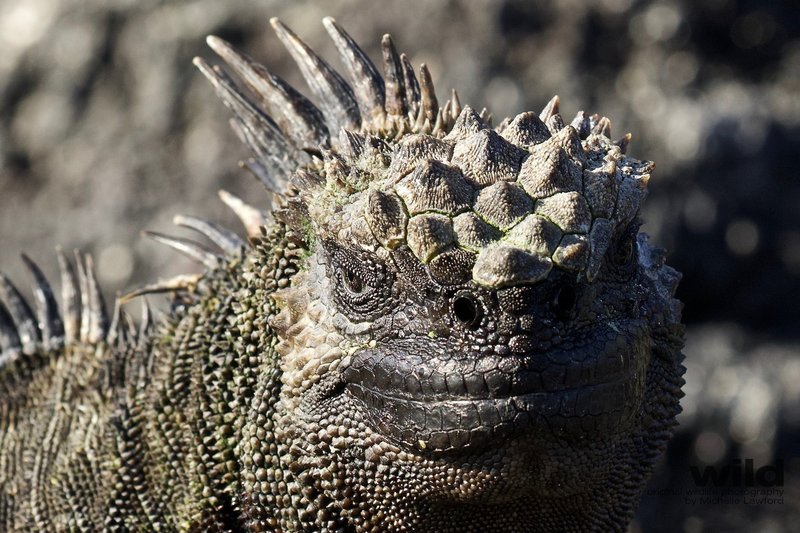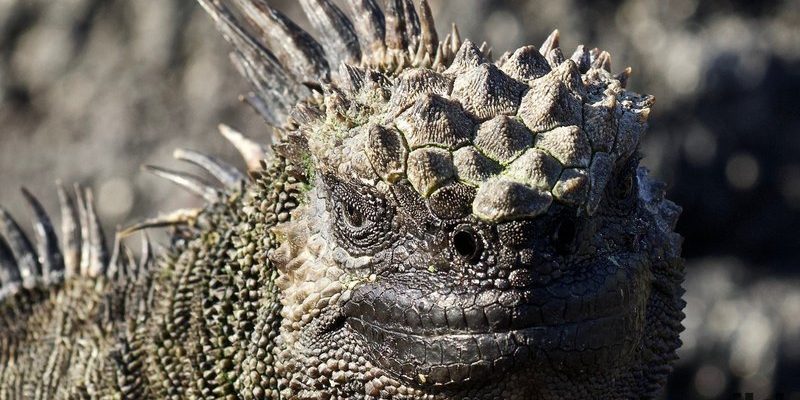
Marine iguanas are often seen basking on the rocky shores, but they aren’t just lounging around; they symbolize resilience, adaptation, and the beauty of evolution. They’ve shaped local legends and even influenced conservation efforts. You might be wondering how a reptile can carry so much weight in terms of culture and symbolism. Let’s dive deep into this topic and explore the layers that make the marine iguana so vital to the people and environment of the Galápagos Islands.
The Marine Iguana: A Unique Creature
The marine iguana (Amblyrhynchus cristatus) is like nothing else on the planet. Imagine a lizard that has taken to the sea, diving gracefully while foraging for algae. These critters can be found only in the Galápagos, where they’ve evolved to thrive in a harsh environment. They’re the only lizards known to swim in the ocean. It’s a bit like seeing a dog take to water—it’s just not common for reptiles!
These iguanas have adapted over time to survive in an ecosystem filled with challenges. Their ability to hold their breath for up to 30 minutes while hunting for food speaks volumes about their resilience. This adaptation has made them not just survivors, but symbols of strength, which resonates deeply with the people who share their habitat.
Cultural Significance in Galápagos Communities
For the communities in the Galápagos Islands, the marine iguana is more than just a fascinating animal; it’s a vital part of their identity. The locals, often referred to as “Galapagueños,” have woven the iguana into their cultural fabric. You might notice statues, paintings, and local art celebrating this unique creature.
Many stories and legends revolve around the marine iguana, serving as a reminder of the islands’ natural wonders. It’s not uncommon to find children playing games imitating the iguanas’ swimming styles. In this way, the iguana isn’t just a part of nature; it’s an integral part of childhood, folklore, and education.
Symbol of Adaptation and Resilience
Marine iguanas embody the concept of adaptation. These creatures have not only managed to survive in an environment that can be unforgiving, but they’ve thrived by changing their behaviors and diets. It’s a powerful example of how life can innovate under pressure.
Locals see this adaptability as a metaphor for resilience, reflecting their own struggles and triumphs. The sea, which can be both nurturing and harsh, mirrors the challenges faced by communities. In many ways, the marine iguana serves as a reminder that adaptation is not just a trait of animals; it’s a vital skill for humans too.
Conservation and Symbolic Rebirth
As the world changes, so do the challenges facing marine iguanas. From habitat loss to climate change, these beautiful creatures have faced numerous threats. Yet, conservation efforts in the Galápagos Islands focus not only on saving the iguanas but also on preserving the culture that cherishes them.
Efforts like guided tours promote awareness about the marine iguana’s significance, helping to educate visitors on the importance of protecting their habitat. This renewed focus on preservation is akin to a rebirth, where locals and tourists unite in respect for the land and its inhabitants.
Marine Iguanas in Literature and Art
The image of the marine iguana pops up in various forms of literature and art, reinforcing its symbolic role. Authors and poets have drawn inspiration from its unique features and behaviors, often using it as a symbol of freedom and tranquility. In art, these creatures are depicted in various styles, showcasing the natural beauty and rawness of the Galápagos.
For many artists, the marine iguana represents creativity born from nature. Their work serves as a reminder that the beauty of the world around us can inspire and transform lives. Seeing an iguana translated onto canvas or described in poetic verses creates a beautiful connection between culture and nature.
Tourism and the Marine Iguana Experience
Tourism in the Galápagos Islands often revolves around the marine iguana. Visitors are eager to catch a glimpse of these fascinating reptiles in their natural habitat. Tours frequently educate participants about the ecological and cultural significance of the marine iguana, blending the experience of seeing the animal with learning about the efforts to protect it.
When you take a tour, you might hear guides share stories about how the marine iguana is viewed by locals, as well as the challenges it faces today. This kind of immersive experience helps foster a deeper appreciation for the cultures and creatures that call the islands home.
The marine iguana is much more than just a reptile; it’s a symbol of strength, adaptability, and the rich cultural heritage of the Galápagos Islands. From its unique adaptations to its integral role in the local communities, this creature embodies the connection between nature and humanity. Understanding the importance of the marine iguana highlights the need for sustainable practices that honor and protect both the environment and the cultures intertwined with it.
So, the next time you think of the marine iguana, remember—it’s not just a fascinating animal; it’s a powerful emblem of life, resilience, and the stories we tell.

